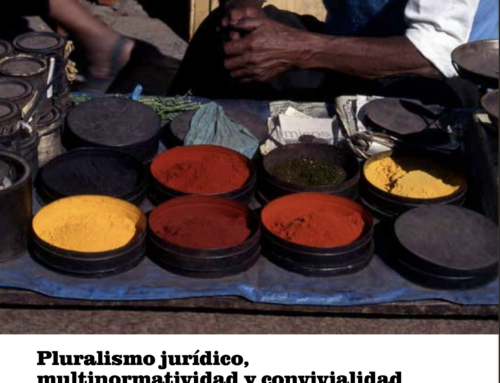The 10th meeting of the “Cities for Fraternity” Association took place between the Belvedere di San Leucio in Caserta and Santa Maria Capua Vetere. The Chiara Lubich Prize was awarded to the city of Alghero. By Lina Ciampi.
Events conspired for the 10th anniversary of the “Cities for Fraternity” Association to be held in a place that has much to do with fraternity and utopia.
As a matter of fact, during the first part of the day, the assembly of member municipalities was hosted in the magnificent setting of the Belvedere di San Leucio. The history of this place has a futuristic flavor: this is where Ferdinand IV of Bourbon pursued his utopia as an enlightened sovereign, and gave life to a project of coexistence and social equity that was so innovative that it was never to be achieved again.
On the evening of 15 February, in Santa Maria Capua Vetere, a preliminary celebration took place: on the stage of the magnificent Garibaldi theatre, crowded with 350 people, artists of different ages belonging to the “Le Stelle del Borgo” Association from Montecosaro (MC) staged “Forza Venite Gente” (Come on, people, come!) – a musical about the engaging story of St. Francis that moved the audience to join in during the final chorus.
Fraternity was also symbolized by a couscous dinner offered by Imam Nasser Houdiri and the local Islamic community.
On the morning of 16 February, the assembly appointed new officials and elected a new president by acclamation: Stefano Cardinali, one of the association’s founders and former vice president.
The two vice-presidents were also elected by acclamation: Bruna Sibille, Mayor of Bra (a town near Turin), and Stefania Proietti, Mayor of Assisi. The new president took the floor and emotionally accepted the post, laying down his vision: to live fraternity at all levels by moving forward together, also by studying it, but above all by committing to live it out by putting our hearts into it.
The other positions were all confirmed. In the afternoon, again in the Garibaldi Theatre, the conference on Fraternity took place, moderated by journalist Nico De Vincentiis. Philosopher Aldo Masullo was among the listed speakers, but he could not attend due to unexpected last-minute events.
Professor Antonio Maria Baggio, a political scientist and lecturer at the Sophia University in Loppiano (Florence), gave an exciting and insightful talk on the variables of fraternity in its various and antithetical conjugations.
Starting from fraternity’s earliest beginnings, he outlined its evolution over the course of history, up to its confluence into politics. His statement that politics, in order to be such, must be fraternal is certainly striking; politics are not to include words of hatred that destroy it and turn it into war.
The afternoon ended with the award-giving ceremony of the Chiara Lubich Prize for Fraternity, the ten-year anniversary prize and honorable mentions. Mayors or representatives from the award-winning cities, with the exception of Riace (Calabria) and Luque (Argentina), took part in the event. The city of Alghero and its local community received the ‘Chiara Lubich’ Cities for Fraternity Award 2019 for having taken action to forcefully denounce the plight of battered and abused women, showing how this is a cultural battle that must involve everyone. The city closed ranks around the two children who were orphaned of their mother Michela, taking charge of their future and testifying to this every day, in a powerful way, with growing brotherhood and solidarity among citizens, institutions, businesses, associations.
Thus, the Alghero city council approved a resolution with the following preamble: «Acknowledging the strong reaction expressed by our citizens (…)» and given «the solidarity shown by the whole city of Alghero, by institutions, associations, businesses, and citizens (…) it was «deemed appropriate to initiate a ‘citizenship adoption’» to state that the 44,000 citizens of Alghero will take care of the two children through a support fund – «A future for Michela’s children». The special 10th anniversary award was given to the town of San Mauro Pascoli (FC) for having facilitated the launch of the “Happiness District” project, whereby the working hours of companies, public service, and other services are organized according to the needs of workers, in the aim of reconciling work and family life.
Honorable mentions were awarded to the following cities:
Melissa (Province of Crotone, Italy), whose citizens were involved, under the mayor’s leadership, in an extraordinary gesture of human “normality.” They did not hesitate to jump into the sea, last January, to save Kurdish citizens who were shipwrecked on their coastline, thus showing the entire European continent how to save those who are in danger and welcome them, without any fear and prejudice.
Ripabottoni (Province of Campobasso, Italy) for its example of effective integration, having opposed the closure of the migrants’ shelter with 32 migrants who have now become perfectly integrated into the city life.
Riace (Province of Reggio Calabria, Italy) for having created and implemented a model that has spread practices of universal fraternity, dealing with immigration as a resource and not as a problem, committing to the common good, promoting the growth of a culture of active and inclusive citizenship characterized by real and effective integration, implementing a contamination between different cultures and traditions, as well as generational solidarity.
Luque (Argentina) for its “Fraternity Award” Project: a municipal order which, since 2002, has decreed the awarding of a prize to individuals or groups for the implementation of actions that are aimed at the common good. It has been awarded uninterruptedly over the years and has increased the sense of brotherhood and positive practices in the city, leading to the recognition of the Region of Luque as the capital of fraternity.
Stefano Cardinali’s closing remarks pointed to the right path: “Thank you very much to the city of Santa Maria Capua Vetere for the affection it has shown us: the pleasure of a two-day “political heaven.” I can still see the smiles, joy, and serenity of mayors, administrators (from majority and minority parties), and citizens who took turns on the stage of the Garibaldi theater to receive their honorable mentions or the Chiara Lubich Prize.
These experiences confirm, once again, that new cities are being built where fraternity becomes a method and a way of life for the politicians who govern them, for the associations that animate them, and for the citizens who live in them. Quoting Professor Baggio, he said: “The words and deeds that generate fraternity are political! The rest are actions of war”… I hereby make a commitment: to use words and carry out fraternal actions, to study the culture of fraternity so that our cities can be places of dialogue, places of love where all citizens can implement their life project.”
Source: CITTÀ NUOVA




Leave A Comment